We all know times are particularly tough right now, and as we all hunker down into isolation, many of us are worried about the effects on our mental health. Here are our top tips for using food to nurture yourself and stay healthy, happy… and sane!
1. Eat regularly.
If you go long periods of time without eating, your body can’t function at its best. Skipping meals can result in brain fog, fatigue and/or headaches. Include a balance of carbohydrates, proteins and fats throughout the day to provide your body with what it needs. Having a balance of these three macronutrients helps keep blood sugar levels stable and will help you feel more energised.
Fibre is important to keep energy levels stable, and luckily many of the staples found in your cupboards are high in fibre. Think pulses such as dried or tinned beans or lentils, or frozen peas; or whole grains like barley or quinoa.
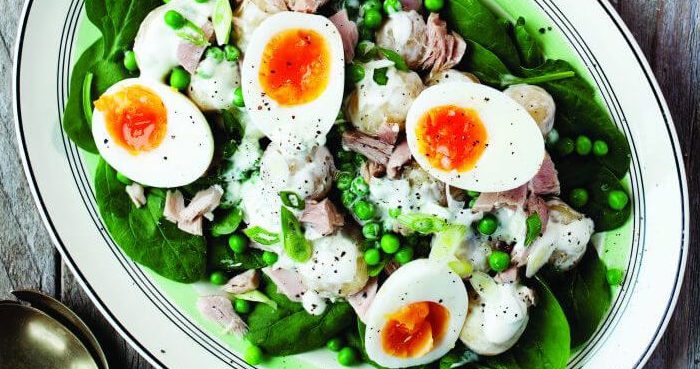
Combine tinned tuna, frozen peas, potatoes and eggs into this hearty protein-packed salad.
2. Drink enough water.
Drinking water gives you energy and keeps your cells functioning at their best. It’s also true that thirst can be mistaken for hunger, so keeping yourself hydrated might stop you eating more than you need.
3. Eat the rainbow.
A good way to ensure you’re getting a wide range of nutrients is to include whole foods of every colour in your diet: red (tomatoes, peppers), orange (carrots, butternut squash), yellow (onions, lemons, bananas), green (spinach, courgettes, broccoli), blue and purple (aubergine, blueberries, red cabbage) and even white (cauliflower, mushrooms) every day. Non-perishables like tinned tomatoes and frozen spinach are included in this, too.
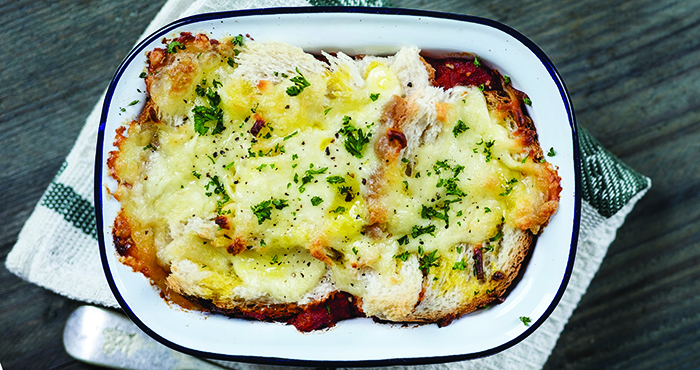
This Sardinian bread pudding uses stale bread and tinned tomatoes
“Eat food. Not too much. Mostly plants.” – Michael Pollan
4. Avoid the sugar high.
When you’re feeling a bit down, it can be tempting to reach for the sweet treats. However, the quick boost of energy obtained from sugary snacks soon leads to a crash, and then you’ll feel even worse. Instead, look for slow-release energy: turn to whole grains or whole fresh fruit combined with some protein and fat; an apple with a few pieces of cheese is a quick and easy option.
5. Enjoy a square or two of dark chocolate.
Dark chocolate boosts the production of “feel-good” chemicals called endorphins, which bind with receptors in the brain leading to feelings of euphoria, similar to those released during exercise. They also reduce pain and diminish the negative effects of stress. In addition to improving your mood, dark chocolate is also packed with antioxidants and beneficial to your brain health.
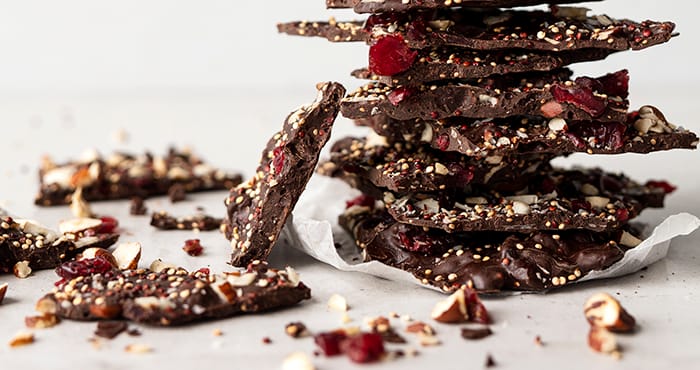
This crunchy quinoa dark chocolate bark is the healthy snack you’re looking for
6. Plan ahead.
Meal planning reduces time spent in the supermarket and makes it easy to use everything you have in the house. At the start of the week, try to create even a rough outline of what you want to eat in the days ahead, combining pantry staples with some fresh items.
7. Cook for (or with) others.
There are psychological benefits attached to preparing food for others, boosting self-esteem and increasing levels of happiness. It doesn’t have to be anything fancy — chat to a friend on FaceTime while you make a tasty, quick pasta dish, or learn to cook an unfamiliar recipe with your spouse.
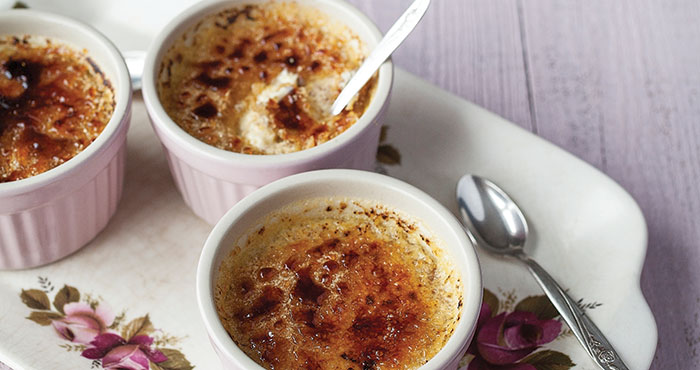
This creme brulee is so easy to make and requires only a few ingredients
“One of the great gifts that you can give people is to cook for them.” – Ina Garten
8. Cook mindfully.
Mindfulness has become such a buzzword in talking about mental health, and with good reason. Forcing yourself to live in the moment and think only about your actions as you perform them is a great way to give your busy brain a break. I love the idea of using cooking as my “mindful” time, really paying attention as I prepare food. (For clumsy cooks, this attitude also leads to fewer cuts and burns!)
9. Eat mindfully.
Make at least one meal a day a mindful one. Turn off the telly, put your phone aside and really focus on enjoying every mouthful. You cooked it, so pay attention while you eat it! This can also be a great time to reconnect with your loved ones; having a chat over the dinner table is good for your relationships, which, in turn, is beneficial for your mental health. Why not organise a group dinner via FaceTime or Skype?
10. Make everything an occasion.
Find the fun in the little things. Plan a luxurious weekend brunch, indoor picnic or romantic dinner with those you live with, and go all out — set the table nicely and make something really delicious.
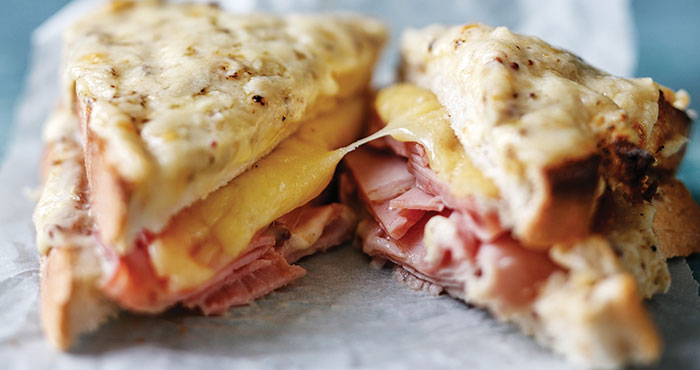
These easy Croque Monsieur sandwiches make a delicious brunch option.
11. Have a glass of wine!
Don’t drink loads of wine, but a glass at the end of the day can work wonders for unwinding and lowering both stress levels and blood pressure and provide a much-needed treat when there’s not much else going on. Combine this with an activity you find relaxing, like soaking in a bubble bath or curling up with a great novel. Savour the “me time” and the wine. You’ve earned it. Treat yo’self.

- summer events
- small business
- gut health
- OATLY
- healthy
- Crudo
- top tips
- All Together Now
- fridge cake
- Events Waterford
- me auld flower
- Events Ireland
- food festival
- news
- dublin
- events Dublin
- dublin festival
- Home-Cooking
- food and drink festival
- online cooking course
- festival line-up
- cooking
- Summer festival
- eco-friendly
- Events
- cosy
- Festivals Ireland
- wine
- Body & Soul
- grapes
- music festival
- south africa
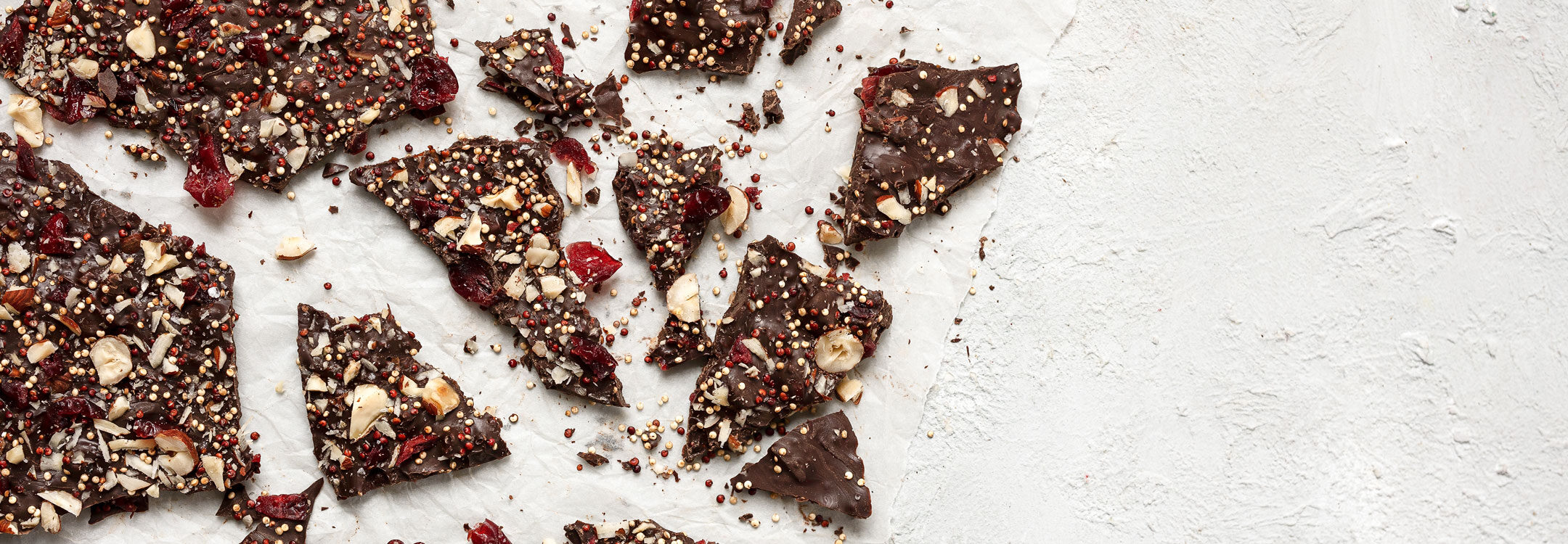
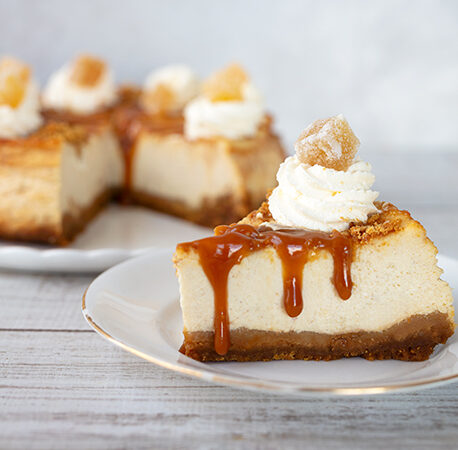
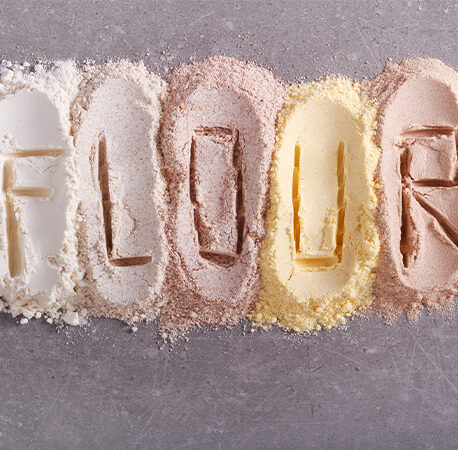
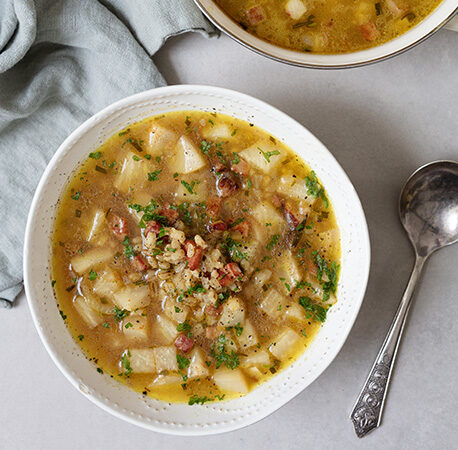
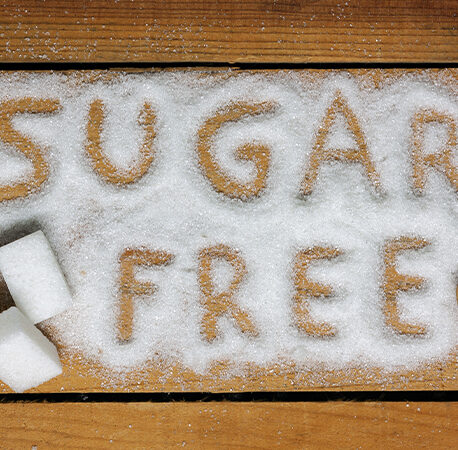
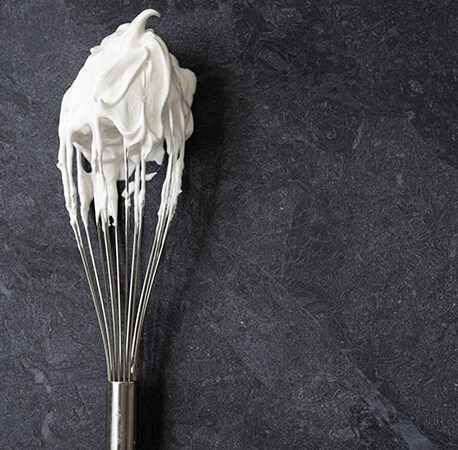
You have to be signed in to comment this post.